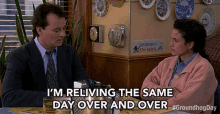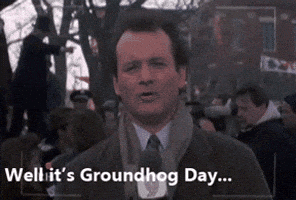Unfairness in the call.....absolutely! He ruled progress WAY too quick. Where you leave the reservation is insisting over and over and over and over that the whistle matters here....it doesn't. Their handling of the play after the fact did not help their cause, by stating the "After review....." crap. There wasn't a review to make. I have provided real counters more than enough times, you just choose not to see them. I'm ok if you want to hang onto this and yell at the clouds. Nobody is happy with the way the play turned out, but there's nothing that could have been done.
This is the only ruling you need. "When in question, the ball is dead".
"A live ball becomes dead and an official shall
declare it dead when a ball carrier is so held that his forward progress is stopped. When in question, the ball is dead"
Declared dead at the 1. Play over. Replay cant help.
Ok, you tell me where this play went from live to dead. Do you think this play was not live till the whistle or signal? You would be right if he blew or signaled (declared) at the point he ruled it to be stopped. He evidently judged it dead at the one, he declared it dead after it broke the plane.
There are 18 other uses of WHEN IN QUESTION in the rule book and it means just that, no official or replay may override his judgement once it goes from live to dead. It is not a candidate for an inadvertent whistle. Good judgement or bad judgement does not matter. I did notice you left out the the fact that your rule actually led with a SHALL SOUND their whistle instruction. Declared is a real time action.
Let's put your rule into context.. Yours defines when to declare the ball dead, 1-2 how to declare it dead. Nothing in either rule or either Forward progress definition or rules supports spotting the ball other than furthest point till declared dead.
Ball Declared Dead ARTICLE 3. A live ball
becomes dead and an official shall sound their whistle or declare it dead:
>>>>
a. >>>
when a ball carrier is so held that their forward progress is stopped. When in question, the ball is dead
What is says is blow it or signal it dead when progress is stopped, and it is dead when and where you do. Why? Both 2-9-2 and 5-1-3 says position the ball based on when legally declared dead. The expectation is you blow it dead when it is stopped.
Forward Progress 2-9-2 ARTICLE 2. Forward progress is a term indicating the end of advancement by the ball carrier or airborne pass receiver of either team and applies to
the position of the ball when it becomes dead by rule.
Or 5-1-3
Forward Progress ARTICLE 3. a.
The most forward point of the ball when declared dead between the end lines shall be the determining point in measuring distance gained or lost by either team during any down.
How is it declared dead? This rule is simple and applicable for every scrimmage play.
4-1-2 Live Ball
Becomes Dead ARTICLE 2. a. A live ball
becomes a dead ball as provided in the rules or
when an official sounds their whistle (even though inadvertently) or otherwise signals the ball dead.
Can you show me a rule that calls for a spot where the ref ruled it for progress like there is for body part down or out of bounds. Those get spotted according to those rules even though those plays are ALSO to be declared dead too according to your rule. See b. for example.
At best your position requires one to accept he gets to retroactively run in and spot the ball after he blew the whistle and signaled it dead after it broke the plane. The following progress related rule would not be enforceable if that were true.
SECTION 6. Deliberate Dead-Ball Advance
Deliberately advancing a dead ball is an attempt by a player to advance the ball after any part of their body, other than a hand or foot, has touched the ground or
after the ball has been declared dead by rule (Exception: Rule 4-1-3-b Exception).
Replay could find a runner was contacted after he was judged down but before the play was legally declared dead. Not an acceptable logic flaw.
I will close again with this ruling from the 21 Football Replay Casebook
19. Forward progress with respect to a first down Third and 10 on the B-20. A22 runs to the B-9, where he is pushed back to the Team B 15-yard line and is never downed. Officials rule forward progress was stopped at the Team B 11-yard line. RULING: Reviewable play, regarding whether A22 had made the line to gain. Reverse to A 1-Goal on B-9, reset clock if within two minutes of the first half or five minutes of the second half and start on Referee’s signal (Rule 12-3-3-e).
I don't care how you posture it, before the play was blown dead a runner got to 9 and the ref ruled or judged or declared that his advance was only to the 11 and replay overturned it. In our game the runner got the ball to the goal and was ruled back at the one. Both were stopped and the fact that one was pushed back more is not relevant to furthest advance, the rule says stopped, The ruling says when progress is involved a ref does not have a magic bullet. Legally declared dead with whistle or signal rules the day.
If your position was true the ruling would have declared this and our game situation not reviewable.




